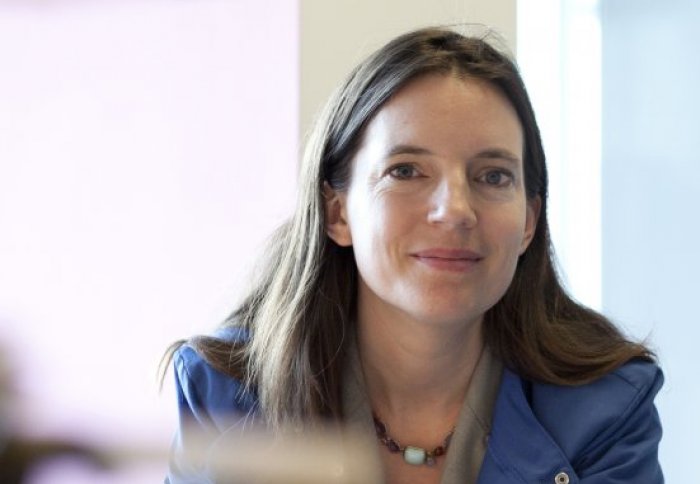Research by scientist in helping the body to repair recognised internationally
by Colin Smith

Professor Molly Stevens is recognised internationally by the Society for Biomaterials.
An Imperial pioneer in regenerative medicine has received one of the highest accolades in her field.
Professor Molly Stevens, from the Departments of Materials and Bioengineering, has received 2016 Clemson Award for Basic Research from the Society for Biomaterials.
The award recognizes the outstanding contributions of researchers to understanding the interaction of manmade materials with human tissue, focusing on theoretical concepts, developing new materials or studying the interactions of a bacteria in a biological environment.
Professor Stevens and her group are designing biomaterials for regenerative medicine and bio-sensing. This includes developing innovative bone, cartilage, nerve and heart tissues. In the future, these could be used as replacements for damaged tissue in the body, helping patients to heal more rapidly.
Her work is also providing important insights into how tissues change when they become diseased.
Professor Stevens said: “It is a great privilege to receive this award and it is very humbling knowing that so many pioneers in the field have received it in the past. This includes the wonderful late Professor Larry Hench, a pioneer in the field of bio-glass materials. He previously worked at Imperial and left a massive legacy here, receiving his award in 1977 whilst working in the States.”
On the bio-sensing side, Professor Stevens and her team are focussing on developing ultrasensitive disease detectors using nanoscopic materials. For example, she has designed a device capable of specifically detecting biomarkers in clinical samples that indicate the early onset of diseases including acute pancreatitis, sepsis and rheumatoid arthritis.
This Clemson award is specifically given for ‘long-term, landmark contributions to the discipline of biomaterials’. It also recognises the multidisciplinary work of Professor Stevens’ team of students and postdocs with backgrounds in materials, engineering, chemistry, cell biology and surgery, amongst others.
Professor Stevens added: “Our team is composed of incredible students and postdocs as well as wonderful collaborators from across the globe. It is a team effort that leads to all the exciting advances that have been recognised by the Clemson Award.”
Professor Stevens received the prize at a special awards ceremony at the World Biomaterials Congress in Montreal in May 2016.
Article text (excluding photos or graphics) © Imperial College London.
Photos and graphics subject to third party copyright used with permission or © Imperial College London.
Reporter
Colin Smith
Communications and Public Affairs